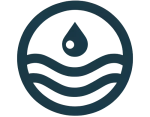The production of pool chlorine tablets is a critical aspect of pool maintenance, ensuring effective disinfection and water clarity. In this article, we will delve into the key considerations involved in the manufacturing process of pool chlorine tablets, emphasizing the importance of quality, safety, and environmental consciousness.

Quality of Raw Materials
The foundation of producing high-quality chlorine tablets lies in the selection of premium raw materials. Chlorine, the primary active ingredient, should meet industry standards for purity. Additionally, other components, such as stabilizers and binding agents, must be of high quality to ensure the tablets’ effectiveness and stability.
Stabilization for UV Protection
Chlorine is sensitive to ultraviolet (UV) rays, which can lead to its degradation when exposed to sunlight. Stabilization is a crucial consideration in chlorine tablet production. Incorporating stabilizing agents, such as cyanuric acid, helps protect the chlorine from UV radiation, ensuring a longer shelf life and sustained effectiveness.
Proper Mixing and Formulation
The manufacturing process involves precise mixing and formulation of the chlorine tablets. Achieving a homogenous mixture ensures consistent chlorine content in each tablet. The formulation must be carefully balanced to facilitate controlled dissolution rates, providing a steady release of chlorine into the pool water.
Tablet Size and Dosage Control
Determining the appropriate tablet size and chlorine dosage is essential. Tablets should be manufactured in sizes that align with industry standards and cater to various pool sizes. Proper dosage control ensures that pool owners can achieve the desired chlorine levels without overusing or underutilizing the tablets.
Efficient Compression Techniques
The compression process is critical in forming chlorine tablets with the right density and structural integrity. Employing efficient compression techniques ensures that tablets withstand handling, transportation, and storage without breaking or crumbling. The use of advanced tablet press machinery helps achieve uniform tablet shapes and sizes.
Testing and Quality Assurance
A robust quality assurance program is indispensable in chlorine tablet production. Regular testing should be conducted to verify chlorine content, tablet dissolution rates, and overall product quality. Quality control measures, such as batch testing and sampling, ensure that each batch of tablets meets or exceeds established standards.
Environmental Considerations
As environmental awareness grows, manufacturers must prioritize sustainability in chlorine tablet production. This includes minimizing packaging waste, using eco-friendly materials, and adopting production processes that reduce environmental impact. Sustainable practices align with the industry’s commitment to responsible manufacturing.
Safety Protocols for Workers
Ensuring the safety of workers involved in the production process is paramount. Chlorine is a potent chemical, and workers should adhere to strict safety protocols. This includes the use of personal protective equipment, proper ventilation systems, and training on handling and emergency response procedures.
Packaging and Storage
Packaging plays a crucial role in maintaining the quality of chlorine tablets. Airtight, moisture-resistant packaging prevents exposure to external elements that could compromise the tablets’ effectiveness. Storage conditions should also be optimized to prevent temperature and humidity fluctuations that might impact the stability of the tablets.
Consumer Guidelines
Including clear and comprehensive guidelines for consumers is vital. Instructions on proper tablet usage, storage, and disposal ensure that pool owners can maximize the benefits of chlorine tablets while minimizing any potential risks.
Regulatory Compliance
Compliance with industry regulations and standards is non-negotiable in chlorine tablet production. Manufacturers must stay informed about any updates or changes in regulations to guarantee that their products meet the required safety and quality benchmarks.
Continuous Research and Innovation
The field of pool maintenance is dynamic, and manufacturers should engage in continuous research and innovation. This includes exploring new formulations, production techniques, and packaging solutions to stay at the forefront of the industry.
Conclusion
In conclusion, producing high-quality pool chlorine tablets requires meticulous attention to detail, adherence to safety protocols, and a commitment to environmental responsibility. Manufacturers must prioritize quality control, safety, and sustainability to deliver products that meet the expectations of both industry standards and environmentally conscious consumers. By considering these key factors, the production of pool chlorine tablets can contribute significantly to the overall effectiveness and safety of pool water treatment.

 Instant
Quote
Instant
Quote Email
Us
Email
Us